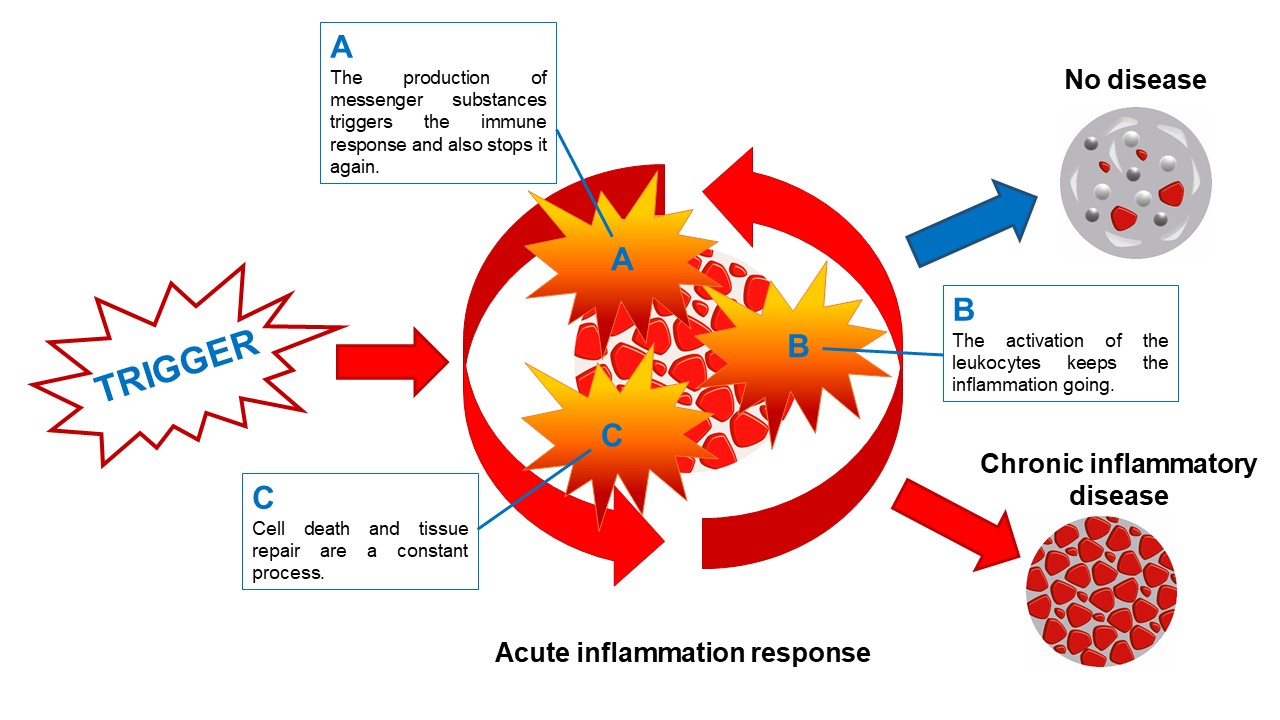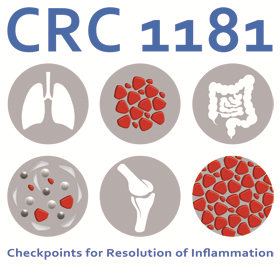On the trail of inflammation stopp

The German Research Foundation (DFG) is extending the funding of the Collaborative Research Centre 1181 (CRC1181) “Checkpoints for Resolution of Inflammation” managed by Prof. Dr. Georg Schett, spokesperson of the CRC1181 and German Centre for Immunotherapy at the University Hospital Erlangen, for a further four years. Many people suffer from chronic inflammatory diseases of the joints, intestines and lungs, which are often severe and can begin at an early age.
The DFG will provide the CRC1181 with almost 14 million euros until 2023 for its ongoing research work. The CRC1181 is investigating the mechanisms of inflammation in arthritis, inflammatory bowel diseases such as Crohn’s disease and Asthma. Physicians and scientists at the CRC1181 are concentrating on gaining a better understanding of the mechanisms involved in the chronification of inflammation.
Physicians and scientists of the CRC1181 are concentrating on better understanding the mechanisms of resolution of inflammation. Although inflammations are vital for the body’s defence function, they must be switched off when the trigger for inflammation is over. How exactly this works is not yet well understood. In the CRC1181, scientists from different fields of medicine, biology and physics are investigating the basic mechanisms of the resolution of inflammation. In the first funding period, central mechanisms of this important regulatory process were already elucidated. These findings will now be further deepened in the second funding period in order to be able to use the Resolution of inflammation as a therapeutic principle in the future. This will be done in close cooperation with the newly founded German Centre for Immunotherapy. In addition, the CRC1181 has made significant contributions to the general understanding of chronic inflammatory diseases through the development of the digital learning game INFLAMMANIA (available as an “app”). In addition to the research work, this successful public relations work will also be continued.
Further Information:
Sandra Jeleazcov
Phone: +49 9131 85-39109
E-Mail: Sandra.jeleazcov@uk-erlangen.de
